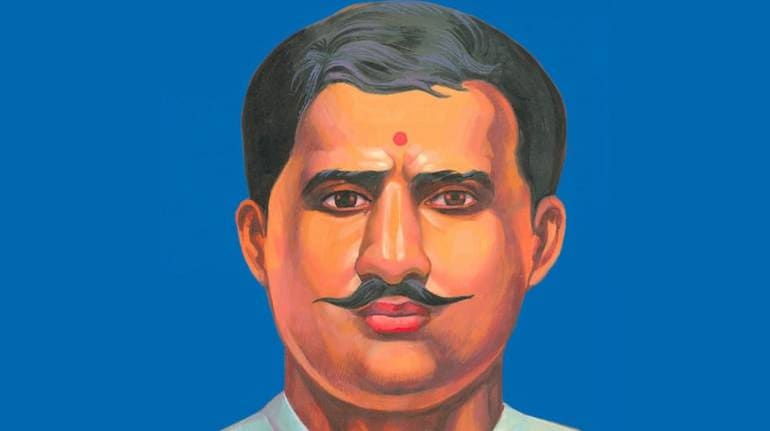



Born on June 11, 1897, Ram Prasad Bismil was among the most noteworthy Indian freedom fighters who resisted British colonial forces till his last breath.
A revolutionary who sought nothing but freedom, he often employed poetry as his weapon of choice in the fight against the imperialist forces.
Ram Prasad was born in a small village in Uttar Pradesh’s Shahjahanpur to Murlidhar and Moolmati. He developed a liking for the Arya Samaj at an early age and started writing patriotic verses in Urdu and Hindi using pen names such as Bismil, Ram and Agyat.
The ideals of a revolution first took roots in his mind when he read about the death sentence awarded to Bhai Parmanand, an Arya Samaj missionary. He was all of 18 then and vented his anguish through his poem ‘Mera Janm’.
He came to be regarded as a freedom fighter after he actively participated in the Mainpuri conspiracy in 1918. Genda Lal Dixit, a teacher from Auraiya district, joined Bismil in his efforts to mobilise youth from Etawah, Mainpuri, Agra and Shahjahanpur and make them join their organizations 'Matrivedi’ and ‘Shivaji Samiti’. He looted government treasuries to fund these organizations, earning him a Robin Hood-like status.
He also published a pamphlet named ‘Deshwasiyon ke Naam’, which also included his poem ‘Mainpuri ki Pratigya’.
He strongly believed that freedom cannot be achieved without violence, bloodshed, which meant his views were in stark contrast to Mahatma Gandhi’s ideals of ‘ahimsa’.
Due to this, members of the Congress party gradually grew averse to him. So, he formed the Hindustan Republic Association; legendary freedom fighters like Bhagat Singh and Chandrashekhar Azad joined it.
In 1925, Bismil and his companion Ashfaqulla Khan decided to loot a train in Kakori near Lucknow. They were successful in their attempt but were arrested alongside a dozen other HRA members within a month of the attack.
The trial in the Kakori conspiracy case sentenced him and three other revolutionaries to be hanged till death. While lodged in jail, he penned his autobiography 'Kakori Ke Shaheed' and the cult song ‘Mera Rang de Basanti Chola’, which continues to instill patriotic fervour in our hearts till date.
His last words while being hanged in Gorakhpur at the age of 30 were “Jai Hind”. He was cremated on the banks of river Rapti and the site was rechristened as Raj Ghat later.
Prime Minister Narendra Modi and several other tall leaders remembered his sacrifices for the nation and paid him their tribute on Twitter.
Tributes to Ram Prasad Bismil, Ashfaqulla Khan & Roshan Singh, who were martyred on this day. Every Indian remembers their brave sacrifice.— Narendra Modi (@narendramodi) December 19, 2013
अमर क्रांतिकारी #रामप्रसादबिस्मिल
जी की जयंती पर नमन ।
Tributes to #RamPrasadBismil on his Birth Anniversary pic.twitter.com/lGR1XYqQap— Arun Jaitley (@arunjaitley) June 11, 2019
We salute Ashfaqulla Khan, Ram Prasad Bismil & Roshan Singh who sacrificed their lives for the freedom of India. pic.twitter.com/bG1ONHtYua— Congress (@INCIndia) December 19, 2015
Tributes to great freedom fighters Ram Prasad Bismil, Roshan Singh & Ashfaqulla Khan on their sacrifice day.We are indebted to them— Suresh Prabhu (@sureshpprabhu) December 19, 2016
Homage to the great revolutionaries Ram Prasad Bismil, Ashfaqulla Khan, Rajendra Nath Lahiri and Thakur Roshan Singh. Salute to their courage and patriotism a href="https://t.co/btxJI5g5RS">pic.twitter.com/btxJI5g5RS— Naveen Jindal (@MPNaveenJindal) December 19, 2018
Discover the latest Business News, Sensex, and Nifty updates. Obtain Personal Finance insights, tax queries, and expert opinions on Moneycontrol or download the Moneycontrol App to stay updated!
Find the best of Al News in one place, specially curated for you every weekend.
Stay on top of the latest tech trends and biggest startup news.